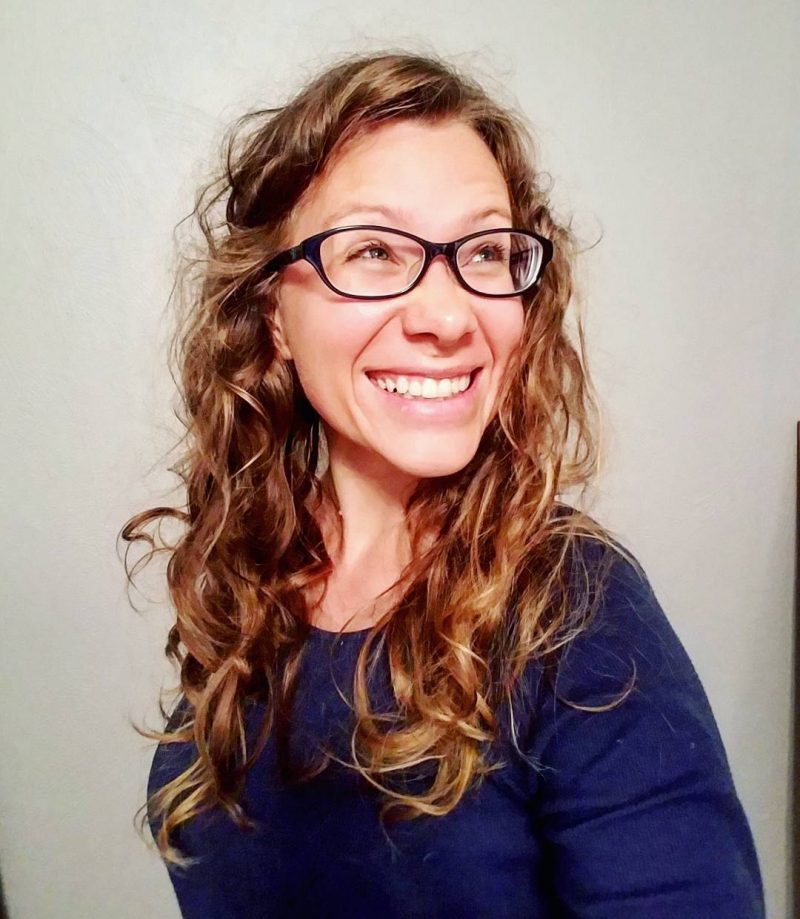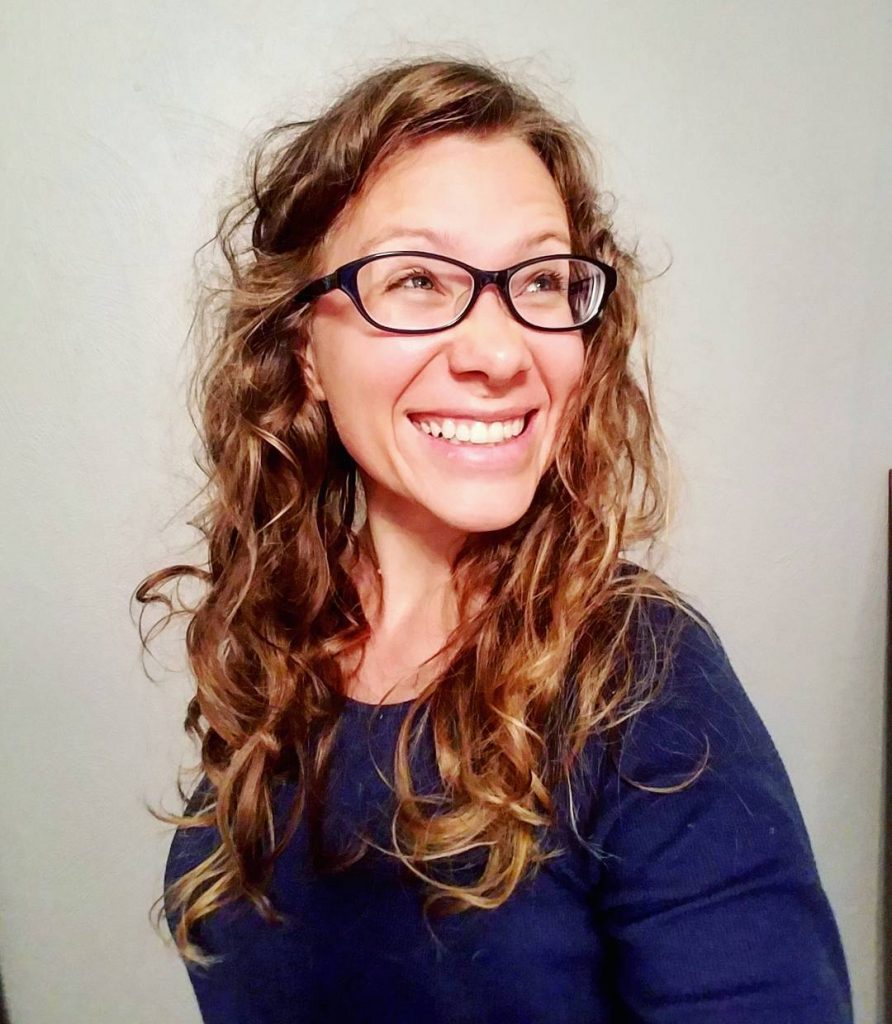Usually, I do best with a steep learning curve, logical facts to wrestle, and practical plans to make. So when I found myself pregnant again (mostly accidentally) when my oldest was 22 months, I settled in to figure out a way to deal with what was crippling post-partum depression the last time around. It was a problem, so there must be a solution, and, I reasoned, I really had an advantage because I had done it all before.
I was much more at home here, in the logical in between, then I was at six months post-partum the first time, when I didn’t feel like myself and didn’t know why, when I thought maybe my whole previous self had been thrown out the hot, streaked window of the military hospital that overlooked the Pacific Ocean.
I hadn’t even realized anything was wrong for months, I just thought I severely struggled with motherhood, I thought maybe it was normal to lose all your hopes and dreams, to expect that nothing was possible anymore. I thought maybe it was just normal to want to throw your child screaming out the window.
I was eight months post-partum when I had to start weaning my baby because of milk supply issues, and as the number of his nursing sessions went down, my previous self returned, to my great shock and joy. If I had never heard of post-partum depression, I had definitely never heard of a depression that was linked to breastfeeding. That had never even occurred to me as a problem I might face in breastfeeding.
Was it the fact that my mind, always ultra-independent, always avoidant of too much touch and clinginess, couldn’t handle the small person literally hanging off of me? Maybe. Maybe it was that, maybe it was the hormones, maybe it was both. But as it lessened, slowly I had come back to myself, back to my husband, back to the tiny, difficult son that clearly took after me in his personality.
All this just in time to be pregnant again.
But this second time around, I knew what was coming, so I made a plan; I was ready. A checklist, categories. I reasoned out the things that I was capable of, the things that might help. I still carried enough of the guilt that mothers always carry, and especially the guilt that anxious, depressed mothers carry. I knew now that breastfeeding made my mental state worse, but when I weighed the guilt against the sure depression, I still couldn’t shake the guilt. I couldn’t do formula, not right away, not without even trying as if I didn’t even care about the probiotics, the immune help, the bonding. As if I didn’t even care about my baby.
Even half sane me couldn’t do that.
So instead I lined up help. My husband’s weeks off, my mother-in-law, my mother. And I made my list: if I had to call my husband home more than two days a week, if I started to think about ending it all, if I couldn’t stop screaming at my oldest, if I was so exhausted I was sick, if I couldn’t control my desperate and negative thought spirals. And this time if it got bad I would stop breastfeeding, I would go to a psychiatrist, and as a very last resort if things went especially terribly, I would do what I never thought I would do in my whole life: I would consider anti-depressants. (I come from a self-sufficient, religious, Midwestern family. Strong people do not take meds, not even Advil for a headache, and they definitely do not take anything for emotional disorders that God should be able to fix.)
So I had the baby, and then I had the help. And then, in an incredibly short blink, it was back to just me at home again, except this time with two babies. And three months in, I could check off almost all the whole list I had so carefully curated before. Husband called home three days a week? Yes, two weeks in a row. Screaming at my oldest? Almost every day. Uncontrollable crying? Yes, yes, and yes.
So, ok, I stopped and took a breath. My goal had been to make it to six months without having to change anything, and I hadn’t made it that far. I had barely made it half that long. But I told myself it wasn’t the end of the world. I had a plan.
I started weaning.
I made an appointment with a psychiatrist.
I stepped into his office, sat down, and started crying. He was older, gentle, kind, a little confused, and completely ignorant. This was perhaps not his fault; he was a psychiatrist on a Marine base and was surely readier to talk through war stories with battle worn, PTSD scarred devil dogs then to sobbing, exhausted mamas still holding their four-month-olds.
He watched me cry, listened to me admitting to him, the first time I had admitted this to anyone, that when the anxiety got bad, it manifested in rage and made me worry about myself and my babies.
He nodded and told me it was important to stay calm and that I needed to take time to meditate. He had tips! He had a program! Five minutes of breathing and inner peace to less anger and agitation!
I laughed in his face through my tears. He had clearly never stayed home with a young two-year-old and a four-month-old baby. Entire days would go by when I would not have time to drain the used bathwater, a simple five-second task. My husband had taken up the laundry in the short hours that he was home, and frankly, Hawaii’s giant flying cockroaches had flocked to our house, where their chances of a free meal were incredibly high, as the dishes were never, ever done.
I explained to him that I changed diapers and settled tears and fed babies 16 of the 24 hours of the day, the rest of the hours I spent sleeping fitfully, constantly playing worst case scenarios over and over in my head while staring into the darkness waiting for one of my boys to cry. I did not have five minutes when I could guarantee I would not be disturbed. I did not even have three.
“Ok,” he said, after I tried to paint that picture to him, in jerky images and language. “Well, maybe the PROBLEM is that you can’t get even five minutes to yourself. So maybe you should get help.”
I looked at him. I was in Hawaii, thousands of miles from family, I had already had my mother and mother in law pay for tickets to come help and there was no more on the horizon. Nannies don’t simply fall out of the sky to give you five minutes to meditate while you are still nursing a four-month-old baby.
I took a breath and asked about meds, my last resort, the thing I never wanted to do. He said, and I still remember his exact words: “I’m reluctant to give anti-depressants to a nursing mother.”
And that was that.
We both went back to our lives.
I went back to my hopeless house where the risk of transferring something through my breastmilk to my baby (who was already starting to wean) was less than the risk of me driving the car into a tree or throwing my baby across the room.
And I imagine he went back to his; probably relieved that he could go back to treating six-foot Marines who likely never covered his office with tears and used Kleenexes, and who definitely never brought tiny crying babies into sessions.
Later this month, my baby turns three, and my boys play together sometimes these days; they sleep through the night, and sometimes I have a second. Sometimes I even have a whole five minutes.
And I think about me now, because I can do that now, I’m allowed to think about what his decision meant for me: that me being a full and competent person was not as important in his mind as the risk of transferred meds.
And some days I think about him, in his office, dealing with Marines and probably breathing a sigh of relief when his next patient doesn’t bring an infant into a session, and I wonder what my next few months would have been like if he had taken me seriously, if he had known enough to see the despair in my eyes. I wonder what would have changed if he had been the help he should have been.
And I think of women, all the world over, up with tiny people in the middle of the night, desperately wishing they could close their eyes, running into doorways because they are that exhausted. I think of mothers in bathrooms, in front of bathroom mirrors, watching their own faces crumple and overflow in the split second of privacy before someone starts calling for them again.
And these women, and the woman that I was, deserve better.









Leave A Comment